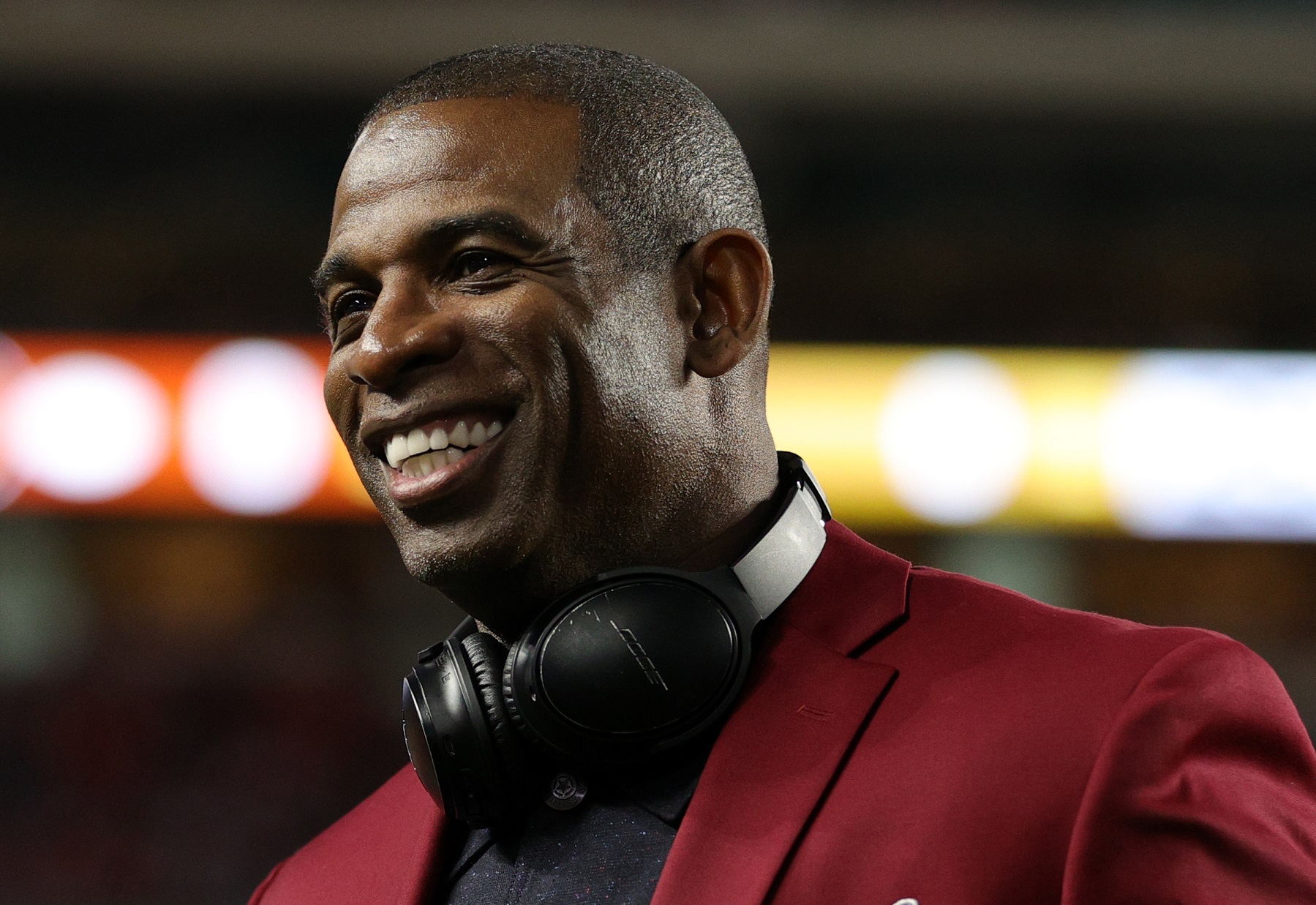NCAA
Deion Sanders Negotiated Himself a Sweet Deal To Coach Jackson State

To give you an idea of just how charismatic Deion Sanders can be, even his contract is more interesting than about 50% of what goes on in the world of sports. A website obtained a copy of Sanders’ agreement with Jackson State, the FCS school he’ll begin coaching this spring, and it has some fascinating nuggets.
In short, Neon Deion knew how to perform on the field with the Atlanta Falcons, San Francisco 49ers, and Dallas Cowboys. And he most definitely knows how to negotiate a contract.
Deion Sanders has his first college coaching job
RELATED: Jaguars Legend Jimmy Smith Wants a Spot on Deion Sanders Coaching Staff
Jackson State administrators introduced Deion Sanders on Sept. 21, 2020, as the 21st head football coach of the Mississippi university that plays in the FCS. Sanders, 53, is best known as a defensive back and return specialist inducted into the Pro Football Hall of Fame. He also had a productive Major League Baseball career while playing in the NFL.
Sanders, 53, won’t jump into his full-time work at Jackson State until the end of the high school season in Texas since he is the offensive coordinator for a team quarterbacked by one of his sons.
While that sounds like an odd arrangement and maybe even a half-hearted commitment, Jackson State is a member of the Southwestern Athletic Conference, which placed fall sports on hiatus because of the COVID-19 pandemic. SWAC schools will play a limited schedule after students return for the spring semester in January, and Sanders has already started landing commitments from recruits.
The Jackson State job marks the first time he is coaching above the high school level, but Sanders negotiated his contract like a pro.
Deion Sanders’ contract is loaded with bonuses
RELATED: Deion Sanders Plans to Unleash His Full Prime Time Self at Barstool Sports
Since Jackson State is a public university, its business dealings are a matter of public record. As such, the Extra Points website filed a Freedom of Information Act request to see Deion Sanders’ contract as head coach of the football team.
While the agreement is loaded with the usual boilerplate language, football fans now know that the former football and baseball star’s deal spans four seasons at $300,000 per year. That would qualify as a terrible deal at a school playing in the FBS, but above-average money for coach a team in the FCS.
Sanders and the school sweetened the deal by settling upon some bonuses:
- $25,000 for beating an FBS opponent.
- $10,000 for winning a SWAC division title.
- $30,000 for an overall SWAC title
- $50,000 for a win in the Celebration Bowl, which pairs the champions of the SWAC and the Mid-Eastern Athletic Conference.
- $5,000 if Jackson State posts a single-year APR score above 970.
There is also a provision for a $100,000 incentive if the school moves to another conference. It’s not believed anything is imminent on that front.
The contract also includes a standard buyout clause. If Jackson State fires Sanders without cause before Dec. 15, 2021, he gets to collect the entire balance of the contract. After that, the school is only obligated to pay 12 months of his $300,000 base salary.
The attendance clause is the best part of the deal
RELATED: Brian Bosworth Might Be Responsible for Deion Sanders’ Prime Time Persona
Jackson State plays its home games at Mississippi Veterans Memorial Stadium, which has a capacity of a little more than 60,000. That’s a rather large facility for the FCS, but Jackson State led the former Division I-AA in attendance last season with an average of 33,762 fans per game.
With the charismatic and ambitious Deion Sanders at the helm, it is easy to imagine Jackson State improving upon that number once the country moves beyond the pandemic and FCS football returns to a fall schedule. That’s where Sanders’ compensation starts to grow by leaps and bounds.
If Jackson State sells more than 30,000 tickets, the school pays him 10% of the gate. It’s easy to envision several crowds per season of over 40,000, so Sanders can count on some big paydays.
In addition, Sanders takes 10% of season ticket revenue if Jackson State sells more than 10,000 such plans. Even including heavily discounted packages for children, the average season-ticket package runs more than $100. The quick math on that suggests that even the minimum 10,000 season packages scores Sanders another $100,000.
Those provisions would make Sanders the envy of most small-school college coaches.











